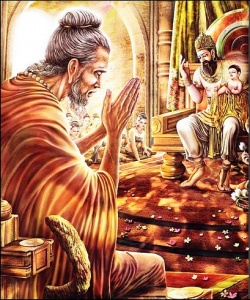Difference between revisions of "Sujāta Thera"
Jump to navigation
Jump to search
| Line 1: | Line 1: | ||
[[File:Suddhodana-hood.JPG|thumb|250px|]] | [[File:Suddhodana-hood.JPG|thumb|250px|]] | ||
| − | '''Sujāta Thera'''. He was a [[brahmin]] of [[Benares]], father of [[Sundarī Therī]]. While grieving for the [[death]] of his son, he met Vāsitthī Therī, and from her he heard about the [[Buddha]], whom he visited at [[Mithilā]]. | + | '''[[Sujāta Thera]]'''. He was a [[brahmin]] of [[Benares]], father of [[Sundarī Therī]]. While grieving for the [[death]] of his son, he met Vāsitthī [[Therī]], and from her he [[heard]] about the [[Buddha]], whom he visited at [[Mithilā]]. |
| − | He entered the Order under the [[Buddha]], attaining [[arahantship]] on the third day (ThigA.229). | + | He entered the [[Order]] under the [[Buddha]], attaining [[arahantship]] on the third day (ThigA.229). |
It is perhaps this [[Thera]] who is mentioned in the [[Samyutta Nikāya]] (S.ii.278f ) as having won the special praise of the [[Buddha]] because of his bright expression. | It is perhaps this [[Thera]] who is mentioned in the [[Samyutta Nikāya]] (S.ii.278f ) as having won the special praise of the [[Buddha]] because of his bright expression. | ||
Revision as of 05:56, 4 September 2013
Sujāta Thera. He was a brahmin of Benares, father of Sundarī Therī. While grieving for the death of his son, he met Vāsitthī Therī, and from her he heard about the Buddha, whom he visited at Mithilā.
He entered the Order under the Buddha, attaining arahantship on the third day (ThigA.229).
It is perhaps this Thera who is mentioned in the Samyutta Nikāya (S.ii.278f ) as having won the special praise of the Buddha because of his bright expression.
